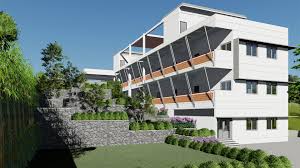Overview
The Deccan Education Society (DES) was established in 1884 by the stalwarts of India’s freedom struggle, like AGARKAR and TILAK and later built by great personalities of the era, like GOPAL KRISHNA GOKHALE and DHONDO KESHAV KARVE (honoured with Bharat Ratna). In Gokhale’s famous words, “..it represents an idea and an ideal. The idea is that Indians of the present day can bind themselves together and putting aside all thoughts of worldly interest, work for a secular purpose with the zeal and enthusiasm which we generally find in the sphere of religion alone. The ideal is the ideal of self-help, that we may learn slowly but steadily to rely less and less upon others,… and more and more upon ourselves.” The DES Society adopted a democratic structure at a time when modern democratic practice was new in India. Teachers’ participation in academic and administrative matters is a unique feature of the DES institutions, which number 30 today. It became a model of the teacher-managed institutions in Maharashtra and symbolised PEOPLE’S OWN INITIATIVE in evolving Education as a means of national regeneration.
The Fergusson College was the first institution to win nationwide acclaim for its academic standards. Its students were imbued with a national spirit and liberal-democratic values. It has played a major role in shaping the social and developmental processes in Maharashtra. TILAK, AGARKAR, GOKHALE, KARVE and many others made a sterling contribution to different aspects of national endeavour. The traditions and values established by them continue to guide the affairs of the Society. One of the main goals of the DE Society was to provide education to WIDER SECTIONS OF SOCIETY by making it cheap and affordable. The selfless work of the founding fathers always impressed and attracted philanthropists and through their generous contributions, several institutions with ample facilities came up. Even today, the Society receives unsolicited donations from well-wishers in India and abroad. Fees in the institutions of the Society have always been moderate and people from other parts of the country invariably wonder, how huge institutions have been created without charging exorbitant fees. The Society always strove to integrate the Western scientific and rationalist traditions with the pluralistic culture of India and thus evolved its unique liberal-democratic values. “…by admitted and established traditions are meant such traditions as are implied in and connoted by the AGARKAR-GOKHALE-PARANJAPYE creed which mainly consists in steadily resisting all extremist and non-cooperation activities and in supporting all progressive social movements…”
Fees
Fees : Approximately ₹4.5 lakh
Other Fees : Additional charges may apply
Hostel Fees : Not specified
Admissions
Admission to IMDR's PGDM program is based on scores from accepted entrance exams such as CAT, MAT, XAT, CMAT, ATMA, GMAT, or MAH MBA CET. Candidates must have a bachelor's degree with at least 50% marks. The selection process includes group discussions and personal interviews. Prospective students should check the specific eligibility criteria and admission procedures on the official website.
Scholarship
IMDR offers various scholarships to support meritorious and financially disadvantaged students. Applicants are encouraged to check the official website for detailed eligibility criteria, application procedures, and deadlines related to scholarships.
Placement
Placement : High
Package : ₹12.9 LPA
Campus
Address: DES Campus, Agarkar Road, Deccan Gymkhana, Pune, Maharashtra, India
Phone: +91-20-67656100
Email: info@imdr.edu
Website: https://www.imdr.edu/

